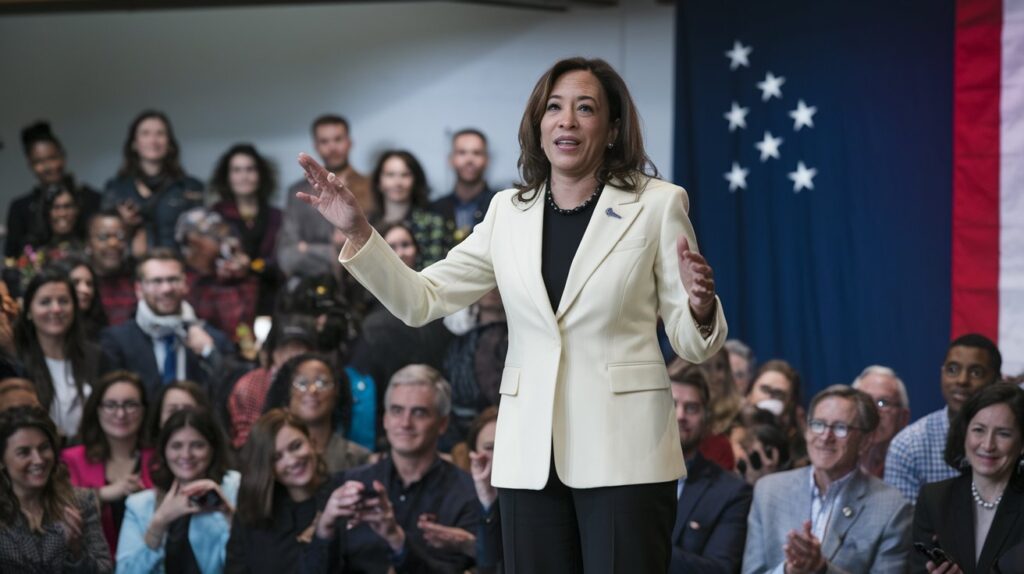The 2024 U.S. presidential election was one of the most consequential and closely watched political contests in recent history. With Donald Trump securing a remarkable return to the White House, political analysts and campaign strategists have now shared key insights into the strategies that shaped the outcome. Both the Trump and Kamala Harris campaigns deployed innovative tactics to mobilize voters, leverage media, and address pressing economic concerns.
Trump Campaign’s Winning Formula
Donald Trump’s campaign focused heavily on economic messaging and immigration policy to appeal to key voter demographics. Despite facing legal challenges, Trump’s campaign successfully portrayed these issues as political persecution, energizing his core base and drawing in new supporters from Latino and Black communities.
Key Elements of Trump’s Strategy:
- Maximizing Male Voter Turnout:
- The campaign strategically targeted young male voters through alternative media channels such as podcasts and social media influencers.
- Collaborations with high-profile figures like Elon Musk helped Trump’s campaign penetrate digital spaces beyond traditional media.
- Economic Messaging:
- The campaign consistently focused on themes of job creation, inflation control, and border security to resonate with middle-class and working-class voters.
- Trump’s promise to curb immigration and boost domestic manufacturing was pivotal in swing states.
- Outsourcing Voter Mobilization:
- Unlike conventional grassroots strategies, the campaign outsourced mobilization efforts to third-party groups that utilized data-driven outreach techniques.
Challenges Faced by Kamala Harris
Vice President Kamala Harris faced significant hurdles following President Biden’s unexpected withdrawal from the race. Despite her efforts to connect with voters and differentiate herself from the previous administration, Harris struggled to counter Trump’s growing popularity.
Harris Campaign Strategy:

- Policy-Centric Approach:
- Harris focused on policies related to social equity, climate change, and healthcare reforms to appeal to progressive voters.
- However, economic dissatisfaction overshadowed these efforts, leading to challenges in key battleground states.
- Rebuilding Trust:
- With Biden’s low approval ratings looming, Harris aimed to re-establish trust by engaging with grassroots organizations and minority communities.
- Media Engagement:
- Despite leveraging mainstream media effectively, the campaign struggled to counter Trump’s influence on alternative platforms.
Key Factors That Influenced the Election Outcome
- Economic Concerns:
- A major deciding factor was the state of the economy. Voters expressed concerns about inflation and job security, which the Trump campaign effectively addressed.
- Shifts in Media Consumption:
- Trump’s embrace of alternative media channels helped him bypass traditional media scrutiny and reach new audiences directly.
- Voter Sentiment:
- Many voters were looking for a shift from the current administration’s policies, which played into Trump’s narrative of ‘restoring America’s greatness.’
What This Means for Future Elections
The 2024 election highlighted the importance of understanding voter sentiment, leveraging alternative media, and addressing economic concerns head-on. Future candidates must adopt data-driven strategies and engage with voters across diverse platforms to ensure success.
Conclusion
In conclusion, the 2024 presidential election was a defining moment in U.S. political history, showcasing the power of strategic campaign planning and voter outreach. By analyzing the strategies behind the Trump and Harris campaigns, it becomes clear that understanding voter sentiment and leveraging media effectively are crucial to winning elections. Whether it’s economic messaging, targeted voter engagement, or embracing new media platforms, the lessons from this election offer invaluable insights for future campaigns.
The 2024 presidential election analysis reveals how rapidly evolving media landscapes and shifting economic priorities can impact voter decisions. As the political landscape continues to change, staying informed and adaptable is key. What are your thoughts on these campaign strategies? Share your insights in the comments, and don’t forget to subscribe for more updates on election trends and analysis. [USnewsSphere.com]





